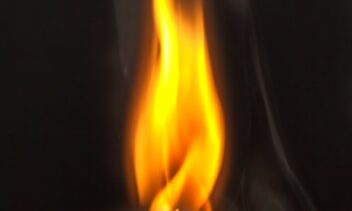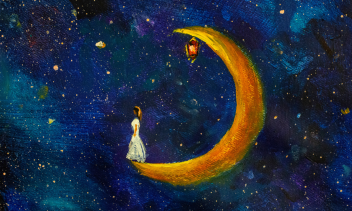My relationship to halacha was undoubtedly shaped by the journey of my father. My father grew up in North Adams, MA—what my Bubbe described as a “crappy little town.” It is where my father and grandfather were born. My great-grandfather and namesake, David Bashevkin, moved there in the early 1900’s. My father grew up in a home that was deeply Jewish—my Bubbe would drive over an hour to the Price Chopper in Albany, NY in order to buy kosher meat. My Bubbe even knew how to salt meat. The Judaism of my father’s childhood was instinctive, organic, and essential. But it was also somewhat ignorant—my grandparents were not well versed in halacha, were not thrilled when my father began wearing a yarmulke, and when he decided to attend Yeshiva University, they nervously asked, “you’re not going to become a rabbi, right?!”
The Jewish world of my Bubbe represented what Professor Haym Soloveitchik called—in his seminal essay, “Rupture and Reconstruction: The Transformation of Contemporary Orthodoxy”—the mimetic tradition. Mimetic, means imitation, and the basic thesis of Professor Soloveitchik’s essay (which has now been republished as a book) is that halacha prior to the Holocaust was primarily transmitted though imitation—people would do what they saw their parents do. Such a transmission was organic and natural, but very often fuzzy on many of the details. Then there was a rupture: the Holocaust. Communities were overturned and the once seamless traditions that were quietly handed down from generation to generation needed to be reconstructed. American Jewry of the 1950’s was unmoored from the tradition preserved prior to the Holocaust in many ways and many—particularly young people—went searching for authenticity. They found authenticity by returning to the text. The text-based tradition of halacha always existed, of course, but it was not at the center of most families’ Jewish practice. Perhaps people turned to rabbinic scholarship for the most pressing questions, but halachic compendiums—particularly those written in accessible language—were not so common. However, beginning in the 1960’s a veritable explosion of English halachic works began, most notably the Shemirath Shabbos K’Hilchasa by Rav Yehoshua Newirth that allowed an orphaned generation to reconstruct their tradition.
My father was a product of that reconstruction. He left North Adams and studied in Yeshiva University’s JSS program, led by Rabbi Moshe Besdin. He didn’t become a rabbi, but he embraced a form of observance that was entirely foreign to nearly every other child who grew up in North Adams. He embraced the details of halacha fully, and even as I was growing up, his attention to detail did not cease. Many of the Jewish families from North Adams assimilated entirely. Without the rigor and detail-orientedness of a text-based tradition and education, Jewish life can easily evaporate, like a scent or a memory. Meanwhile, my father became focused on building a family of a different sort. He married my mother, who grew up in a rabbinic home. He paid close attention to my mother’s father, Rabbi Moshe Bekritsky, and began to adopt more of the practices he learned from his patients over the years. He took care of Rabbi Stein, a renowned expert in the laws of eruvin—soon enough, he wasn’t relying on the local eruv. Some would diminish my father’s trajectory as “a slide to the right.” But that’s because they don’t know the town in which he grew up. I prefer to see my father’s evolution as a reaction of sorts to his own childhood—he saw firsthand what happens when tradition is preserved without education, when organic communal practice becomes untethered from the rigor and substance contained in the fine print on the page. So he embraced halacha, grasped it with both hands, because he knew that it could be lost.
Children rarely appreciate the sacrifices of their parents. And I was no exception. Growing up, I had a difficult time appreciating my father’s relationship with halacha. What he found stabilizing, I sometimes found suffocating. He would wake up at 4AM, davening early. I would go to sleep at 4AM, davening late, if at all. The tangibility of faith that halacha provides can feel cumbersome and heavy in the wrong hands.
Rabbi Haym Soloveitchik, famously concludes his article:
It is this rupture in the traditional religious sensibilities that underlies much of the transformation of contemporary Orthodoxy. Zealous to continue traditional Judaism unimpaired, religious Jews seek to ground their emerging spirituality less on a now unattainable intimacy with Him, than on an intimacy with His Will, acidly eliciting Its intricate demands and saturating their daily lives with Its exactions. Having lost the touch of His presence, they seek now solace in the pressure of His yoke.
It’s a powerful ending and one that always resonated with me. I was in search of a presence and all I could feel was the pressure of the yoke.
I needed a new language to ground my understanding of halacha. And I found one in language itself. In the April 2001 edition of Harper’s Magazine, David Foster Wallace, published an article entitled, “Tense Present: Democracy, English, and the Wars over Usage.” It is a long, sprawling piece, like much of Wallace’s writing. The article is a review of different dictionaries and their respective approaches to the development of language. One approach, called prescriptivism, preserves syntax and grammar as it should be used. We’ve all met such people. They correct “who” for “whom,” they point out when we are mispronouncing words, they hate the word “irregardless”. As Wallace writes, “There are lots of epithets for people like this–Grammar Nazis, Usage Nerds, Syntax Snobs, the Language Police.” Then there is another approach–the descriptivists. Wallace describes, “For the pure descriptivist, it’s impermissible to say that one form of language is any better than another: as long as a native speaker says it, it’s OK–and anyone who takes a contrary stand is a dunderhead.” Descriptivists prefer language as it is organically and commonly used. They might mispronounce words. They probably use the term “begs the questions” without regard for its actual meaning. But the battle over how language should be preserved and developed gave me a new understanding of halacha and its development.
But halacha as language also provides a framework … see if you can discover the underlying meaning that different dialects are trying to transmit.
Language is a system of words and letters that conveys meaning. Halacha is a system of practices, observances and rituals that preserves religious meaning. Thinking of halacha as a language helps—for me at least—better understand so much of what the halachic system is about:
How Language/Halacha Evolves
Language is not legislated. The English language certainly evolves, and there are certainly experts of usage–like dictionaries and copy editors–but there is *also* an organic element. Moshe Koppel makes this point in his work, Judaism Straight Up. In chapter 6 of his book, Koppel explains how language and halacha are able to be preserved without a strict legislative or enforcement structure. As flimsy as our collective intuition may seem, it is actually a rather resilient method for the preservation of authenticity.
Different Dialects
I admire great writing. Like the classic description from Strunk and White’s Elements of Style:
Vigorous writing is concise. A sentence should contain no unnecessary words, a paragraph no unnecessary sentences, for the same reason that a drawing should have no unnecessary lines and a machine no unnecessary parts. This requires not that the writer make all sentences short or avoid all detail and treat subjects only in outline, but that every word tell.
But of course, not everyone has the skills, education, focus, or discipline to write this way. Sometimes you need a great copy editor. Other times the medium does not call for that sort of precision, like when you text someone “ttyl.” We have different ways of writing—in emails, books, online essays, text messages, or spoken conversation. The primary metric is whether or not the proper meaning is transmitted. Is the system of halacha creating a system in your life that allows you to remain tethered to the ultimate meaning—our relationship to God and the Jewish people? As Rabbi Soloveitchik explains, halacha is predicated on a suspicion of our individual ability to preserve this meaning without concrete action and behavior. He writes:
The Halakhah is no longer satisfied with the inner image, and it demands externalization and actual representations. The purely experiential search ends in action.
The Halakhah is distrustful of the genuineness and depth of our inner life, because of its vagueness, transience, and volatility. Therefore, it has introduced, in the realm of the experiential norm, concrete media through which a religious feeling manifests itself in the form of a concrete act.
This also provides a healthy analogy for appreciation of the full spectrum of Jewish observance and practice. Halacha as language doesn’t mean that everything is relativistic. There’s a difference between a carefully worded published op-ed and a sloppily written text message. But halacha as language also provides a framework where we don’t have to be dismissive or cynical of those who don’t have the ability to write carefully manicured prose. Not everyone can afford a copy editor; not everyone has learned the rules of grammar. But instead of laughing, rolling your eyes, or becoming dismissive, see if you can discover the underlying meaning that different dialects are trying to transmit.
The Role of the Details
At some point anyone who has sat in a class studying the intricacies of halacha has either asked or witnessed someone else ask a version of the basic question, “why does God care about all of these details?” It’s an important question.
When I was in school, the internet was first emerging and my teachers used it as the following analogy, (which, for the record, I do not like) “It’s like typing in a webpage. If you leave out the period after www it will not bring you to the proper website.” I always found this answer frustrating because it presents observance as a stark either/or. Either type in the right web address or you’ll be prompted with an error message. That is not the halachic universe I inhabited. Instead, I think language is again instructive. Not the language of computers but the language of human beings—spoken and in writing, communicating with one another. If you miss a comma, a period, include a misspelling or a typo—generally we can still converse. Not every mistake is equal. Some mistakes change the very meaning of the words; others just help the meaning come across more crisply. And if halacha is like language, then not every mistake is equivalent. You don’t automatically go to the error page for one missing period. And there is also an added motivation to carefully study—like all great writers and lovers of language—the details, sources, and reasoning behind our halachic system. If you love telling stories, you’ll love learning how to communicate them better. And if you love the underlying meaning of Jewish life, you’ll learn how to preserve it better through the language of halacha.
Learning a language can be tedious: when do you use a comma, a semi-colon, and of course when in doubt—just use that trusted em-dash. Sometimes when learning a language, the rules feel too restrictive, the writing feels stunted or too high falutin. What Wallace describes as hypercorrection, “sometimes people strive to abide by the strictest etiquette, but in the process behave inappropriately.” Other times, you can become too dismissive of syntax, separating details from the larger meaning that have been preserved over the generations. But even without formal legislation or enforcement, halacha, much like language, has preserved Jewish practice and ideas remarkably well over the generations. Personally, anytime I have the urge to gloss over a detail, I remind myself of Sorites Paradox, which considers a lone grain of sand:
A typical formulation involves a heap of sand, from which grains are individually removed. Under the assumption that removing a single grain does not turn a heap into a non-heap, the paradox is to consider what happens when the process is repeated enough times: is a single remaining grain still a heap? If not, when did it change from a heap to a non-heap?

We can’t pluck out a grain of sand from the halachic system and assume it serves no purpose. Yes, perhaps meaning can continue without that grain, but at some point you may be left without a heap—and by the time you find out, it may be too late.
I have also found Chesteron’s fence an instructive thought-device for my appreciation of halacha, even when I am a little unclear about what purpose a particular detail serves.
As Chersterton explains:
There exists in such a case a certain institution or law; let us say, for the sake of simplicity, a fence or gate erected across a road. The more modern type of reformer goes gaily up to it and says, “I don’t see the use of this, let us clear it away.” To which the more intelligent type of reformer will do well to answer: “If you don’t see the use of it, I certainly won’t let you clear it away. Go away and think. Then, when you can come back and tell me that you do see the use of it, I may allow you to destroy it.
This sensitivity is something I learned from my father. He grew up in a world where he saw his community and friends slowly take down fences, remove grains of sand, and the rich Jewish world in which he was raised slowly eroded. A healthy relationship with halacha doesn’t just foster the gentle touch of its presence; it comes with the historical knowledge that without any pressure from its yoke, it can and has been lost entirely.
Thinking now, my Bubbe in many ways represents that gentle touch of Jewish life—organic, natural, before the rupture. My father has always embraced the strength needed to carry the pressure of its yoke. And I am fortunate that I was raised in a home that celebrates both. My sister, Elana, continued the tradition of my father; she was raised in the Five Towns, but lives now in Sanhedria-Murchevet. And within that world of reconstruction, she—and all of us—lives. She wrote the most moving tribute to the mimetic world of my Bubbe in an article entitled, “A Kosher Home,”
When we ponder the Jewish heroes of early 20th century America, we conjure the deeply pious men and women who coaxed Torah and Yiddishkeit from streets stubbornly paved in gold, the ones who built our yeshivos and Beis Yaakovs brick by brick, ultimately cultivating today’s American Olam HaTorah (trans. World of Torah). They’re the household names we utter with reverence, whose faces hang on our walls and names line our bookshelves. And very justifiably so. We owe them both our present and our future.
But there’s another genre of Jewish American heroes, individuals who knew close to nothing, save for the tepid drops of Judaism that survived a transatlantic journey eons ago. Lacking proper education and role models, they weren’t bastions of halachic authority or fidelity. But their mesirus nefesh (trans. devotion) to keep what they did know while so many of their peers shed observance, confers them a hero’s status all their own.
Perhaps the syntax of our collective halachic language has changed, but it is people like my Bubbe who through their quiet sacrifice and mimetic observance ensured that we even have a surviving language to preserve. A generation whose prose may not have been perfect, but it was their commitment to the meaning that allowed our contemporary discourse to survive. And no matter what language you speak, that is something we should always find meaningful.









